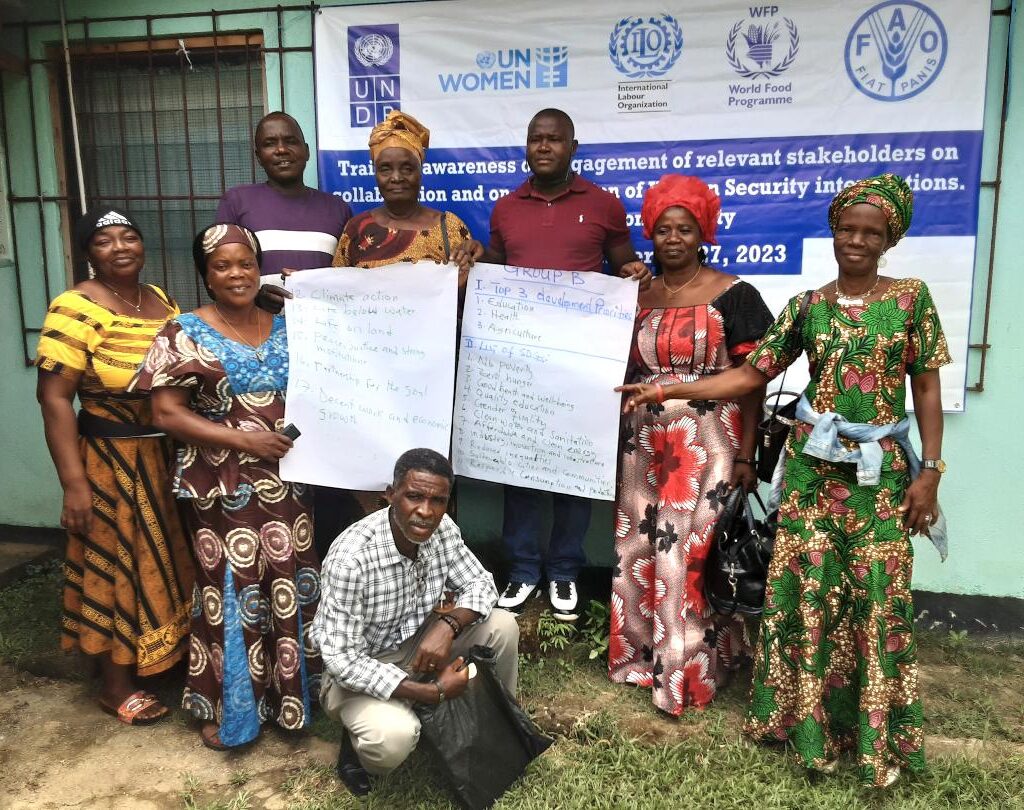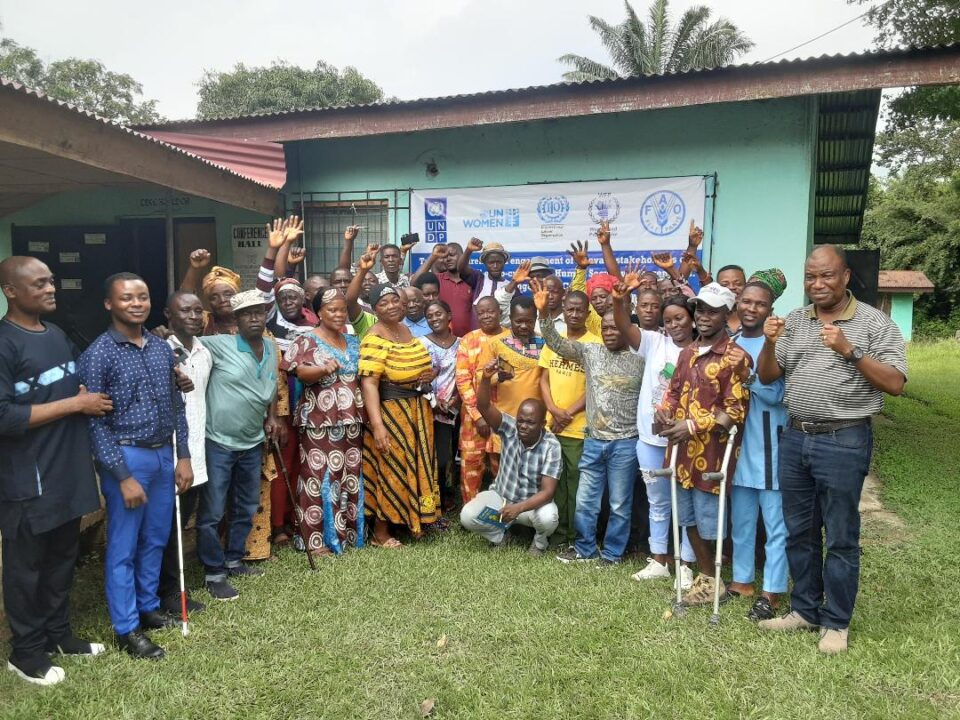Training and Awareness Workshop held on Stakeholder Collaboration and
Monrovia, Liberia – The United Nations Development Programme (UNDP) has conducted a three-day stakeholder engagement workshop in Gbarnga City, Bong County, emphasizing the importance of collaboration and co-creation in the context of Human Security Interventions.
The workshop, which was conducted recently, targeted stakeholders from project counties aimed at enhancing their capacity to co-create projects aligned with the Human Security Protection floor while promoting the smart village concept which aligns with the Sustainable Development Goals (SDGs), a UNDP press release said.
Speaking during the opening ceremony, Railey G. Myers, Development Superintendent of Nimba County, expressed gratitude for the training workshops, which have provided participants with a deeper understanding of the 17 SDGs and how development initiatives can address human insecurity needs while advancing sustainability.
He urged participants to take the training seriously, disseminate the knowledge gained among their communities, and become agents of change and advocates for the SDGs.

UNDP Human Security Country Program Manager, Robert Dorliae, explained the training’s purpose, emphasizing the importance of building the capacity of relevant stakeholders in designing project proposals for human security interventions at the community level through collaboration and co-creation.
Dorliae defined co-creation as the process of involving community members, leaders, and experts in designing local solutions to local problems, stressing that “community collaboration and placing the people at the center of development processes and decisions are vital for achieving project deliverables”.
Stanley Kamara, National Economist of UNDP in Liberia, delivered an overview of the SDGs’ background, its adoption by the United Nations, and the progress made toward achieving the 2030 global SDGs targets.
Kamara noted that only 12% of the SDGs have been achieved globally, quoting the UN Secretary-General as saying that there is an urgent need for member countries to establish acceleration and transformation plans to catch up.
In terms of Liberia’s performance, Mr. Kamara informed participants that the country is on track for SDG goal 13 (Climate Action) and is making moderate improvements in goal 17 (Partnership), while encountering challenges in goals 2, 3, 5, 6, 9, 15, 16, and a decline in goal 4 (Quality Education).
“The United Nations’ implementation of the Human Security Project in collaboration with the government of Liberia is strategically aligned to complement the government’s ongoing efforts in achieving a substantial proportion of the Sustainable Development Goals (SDGs) within the remaining seven years of the SDGs implementation period” he noted.
The Youth Coordinator of UNDP Liberia Lovett Weah emphasized the importance of inclusivity, particularly for people with special needs. Weah highlighted the tendency to overlook the needs of these individuals in project planning and design.
He further noted that by mainstreaming issues related to people with special needs from the project’s inception, their interests can be better addressed.
The training marked the fourth in a series of awareness workshops organized by UNDP under the Human Security Trust Fund Project to deepen participants’ knowledge of human security concepts and SDGs-related issues and goals.
The workshop was attended by 63 participants from Salayea in Lofa County, Bahn, Gbanquoi, and Zuluyee in Nimba County, Botota and Forquelleh in Bong County.
Participants included Development Superintendents, District Commissioners, City Mayors, Women leaders, District health and agriculture officers, school principals, and leaders of people with special needs.
The training was held in Gbarnga City, Bong County, from September 25 to 27, 2023, and organized in collaboration with the International Telecommunication Union (ITU), World Food Program (WFP), International Labour Organization (ILO), Food and Agriculture Organization (FAO), UN Women, and the Government of Liberia (GoL), which collectively constitute the project implementation team.

